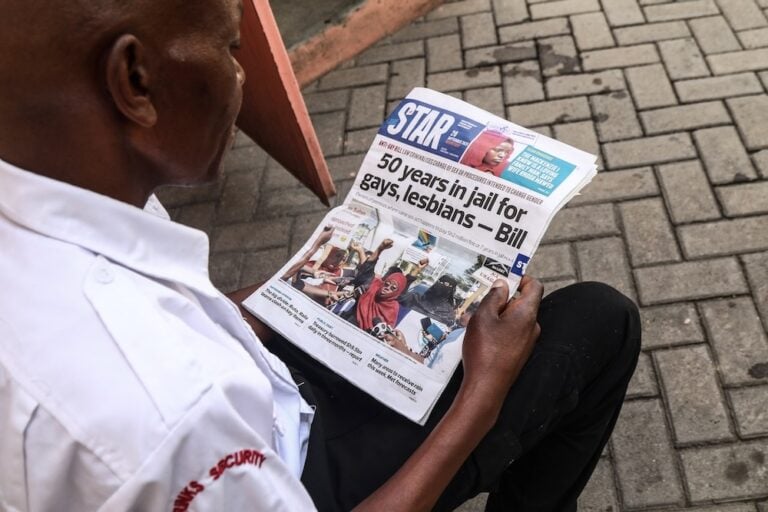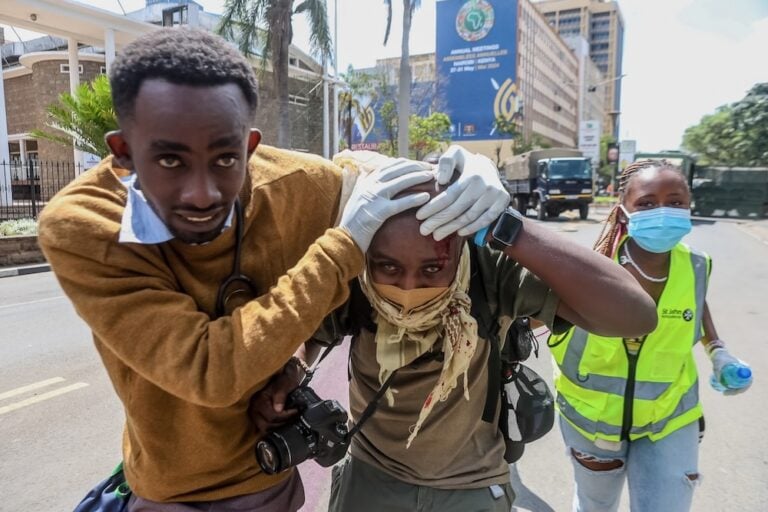(NDIMA/IFEX) – On 10 January 2004, police raided news stands in major Kenyan towns and confiscated copies of newspapers published by the “alternative press”. Scores of vendors were arrested in the well-coordinated crackdown, which Tourism and Information Minister Raphael Tuju said was aimed at getting rid of illegal newspapers. He added that the action was […]
(NDIMA/IFEX) – On 10 January 2004, police raided news stands in major Kenyan towns and confiscated copies of newspapers published by the “alternative press”.
Scores of vendors were arrested in the well-coordinated crackdown, which Tourism and Information Minister Raphael Tuju said was aimed at getting rid of illegal newspapers. He added that the action was taken because the newspapers had not complied with the law on “registration, execution of a bond and making returns”. On 12 December 2003, the minister warned that a crackdown would be carried out because the owners of the “alternative press” had failed to respect journalistic principles with respect to balance and fairness.
In the capital city, Nairobi, police raided at least one printing press and confiscated newspapers rolling off the press, which would have been ready for sale on 12 January. During the dawn raid at the “Independent” newspaper’s Immediate Press, the officers seized plates and other equipment. The newspaper’s editor, Mburu Muchoki, said that at least 15,000 copies were impounded.
Newspapers that were confiscated include the “Independent”, “Kenya Confidential”, “Citizen”, “News Post”, “Weekly Wembe” and “Summit”. Police also arrested “News Post” publisher Ndirangu Kariuki, but later released him.
In the coastal town of Mombasa, police impounded bundles of the Nation Media Group’s “The Coast Express” at one news stand. Five vendors were arrested and police said they would appear in court on 12 January. Coast Province Criminal Investigation Officer Dida Dilicha said the crackdown on the “gutter press” would continue.
Police also raided news stands in the towns of Nakuru and Kisumu.


